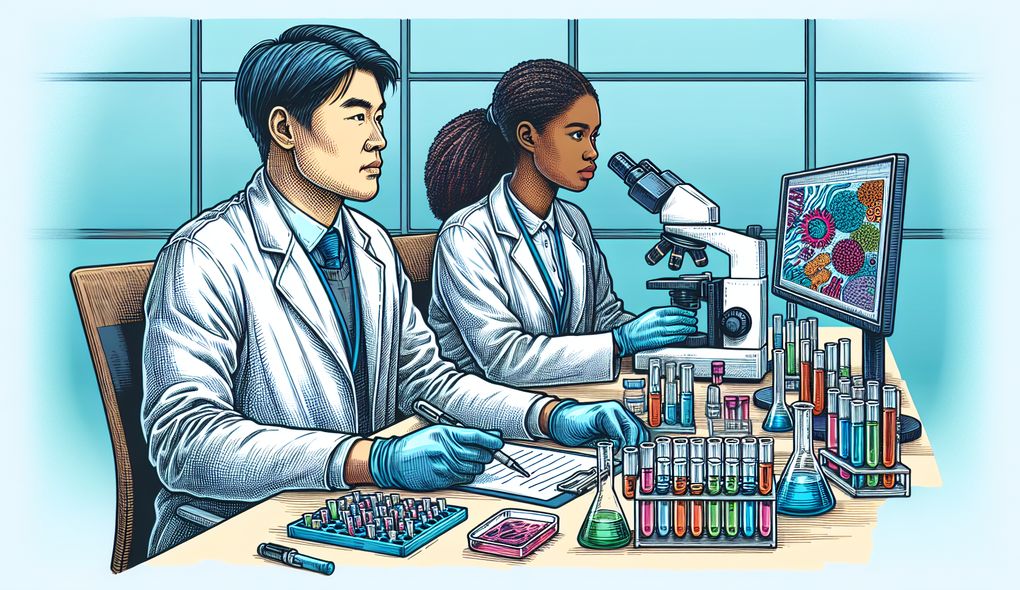How do you handle feedback or constructive criticism from physicians or colleagues?
INTERMEDIATE LEVEL

Sample answer to the question:
When it comes to feedback or constructive criticism from physicians or colleagues, I believe in embracing it as an opportunity for growth and improvement. I welcome feedback with an open mind and listen attentively to understand the specific areas where I can make adjustments. I take the feedback seriously and reflect on it, identifying ways to implement the suggestions into my work. I also believe in asking clarifying questions to ensure I fully understand the feedback. By approaching feedback as a chance to learn and develop, I continuously strive to enhance my skills and deliver the best possible results.
Here is a more solid answer:
Receiving feedback or constructive criticism from physicians or colleagues is an essential part of personal and professional growth. In my previous role as a Clinical Laboratory Technologist, I had numerous opportunities to receive feedback from physicians and colleagues on my work. For example, there was a time when a physician provided feedback on a report I had prepared, suggesting improvements in the formatting and clarity of the information presented. Instead of taking it personally, I actively listened to the feedback, asking clarifying questions to ensure I understood the changes required. I took the feedback seriously and made the necessary adjustments to the report. Additionally, I regularly participated in team meetings where we would discuss feedback and suggestions for improving our collaboration and communication. By actively engaging in these discussions and implementing the feedback, we were able to enhance our teamwork and ultimately improve patient care. Through these experiences, I have learned the value of feedback and how it can contribute to professional development and the overall success of the team.
Why is this a more solid answer?
The solid answer provides a specific example of how the candidate handled feedback from a physician and demonstrates their ability to listen attentively, ask clarifying questions, and make improvements based on the feedback. It also highlights the candidate's ability to work collaboratively as part of a team by mentioning their participation in team meetings to discuss feedback and suggestions for improvement. However, the answer could be improved by including more examples and elaborating on the candidate's effective communication skills.
An example of a exceptional answer:
Feedback and constructive criticism play a crucial role in my professional development and continuous improvement. In my current role as a Clinical Laboratory Technologist, I actively seek feedback from physicians and colleagues to enhance the accuracy and efficiency of my work. For instance, there was a time when a physician provided feedback on a test result that was slightly outside the normal range. Instead of simply accepting the feedback and making the necessary adjustment, I proactively discussed the case with the physician to gain a deeper understanding of the clinical implications and potential underlying causes. This not only helped me to address the immediate concern but also enabled me to expand my knowledge and improve my future analysis. Moreover, I have established an open and transparent communication channel with my colleagues, encouraging them to provide feedback on my work. By creating a safe and collaborative environment, we effectively exchange ideas and suggestions, leading to enhanced teamwork and better patient outcomes. In addition, I actively seek opportunities to learn from my colleagues' expertise and share my knowledge and best practices to facilitate mutual growth. Overall, I believe that feedback is a valuable asset that drives personal and professional progress, and I am committed to utilizing it to continuously improve my skills and contribute to the success of the team.
Why is this an exceptional answer?
The exceptional answer offers a specific example of how the candidate actively sought feedback from a physician and went beyond making simple adjustments to engage in a meaningful discussion to deepen their understanding and improve future analysis. It also highlights the candidate's proactive approach to encouraging feedback from colleagues, creating a collaborative environment, and actively seeking opportunities for mutual learning and growth. This demonstrates the candidate's exceptional communication skills, ability to work independently, and effectively collaborate as part of a team. However, the answer could be further improved by providing additional examples and detailing the candidate's ability to implement feedback into their work.
How to prepare for this question:
- Familiarize yourself with the concept of constructive criticism and its importance in professional growth.
- Reflect on past experiences where you have received feedback and consider how you handled it.
- Practice active listening and asking clarifying questions to ensure you fully understand feedback.
- Highlight instances where you have implemented feedback to improve your work or enhance teamwork.
- Consider ways in which you can create a collaborative environment and encourage feedback in your future role.
What are interviewers evaluating with this question?
- Communication skills
- Ability to work independently and as part of a team

